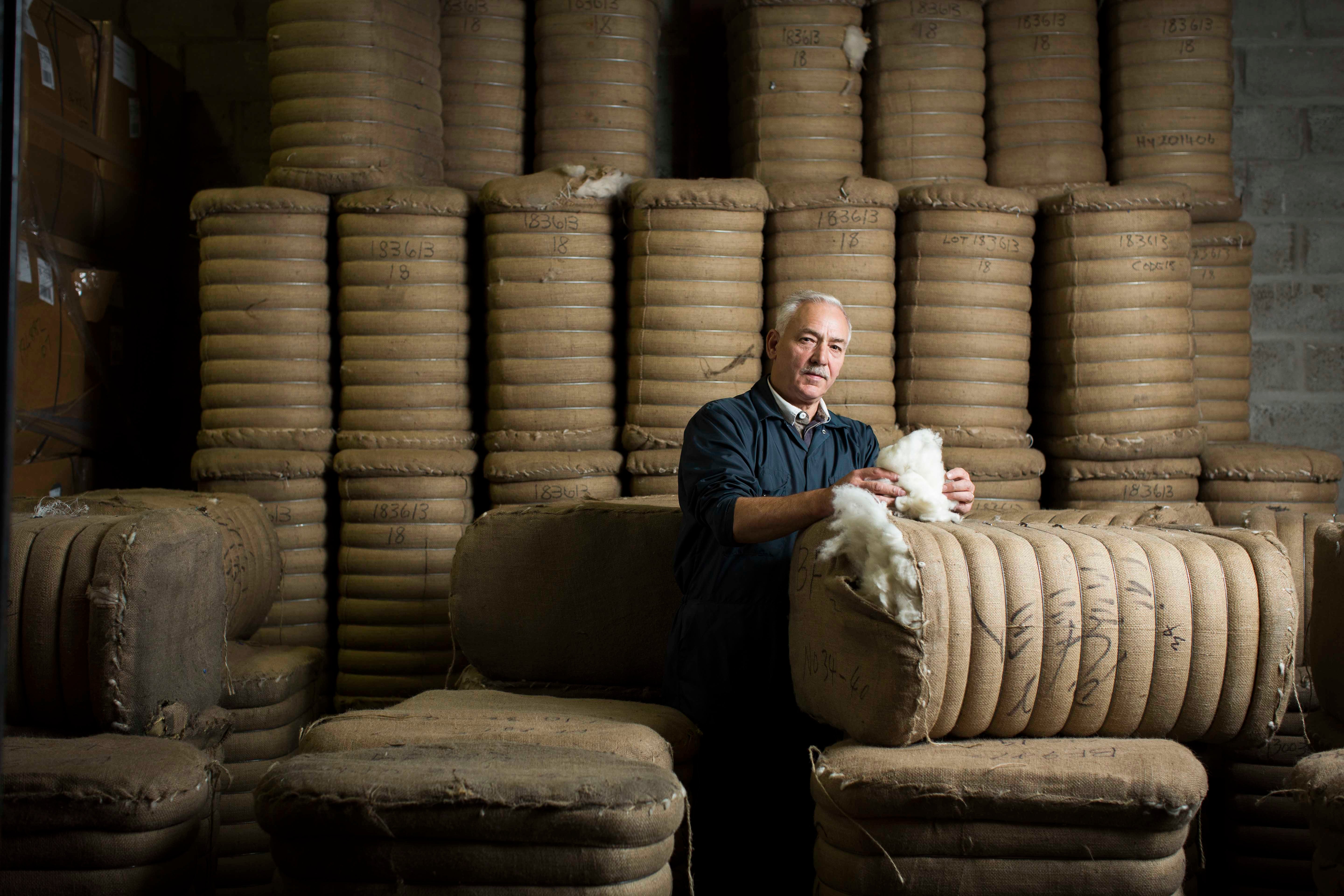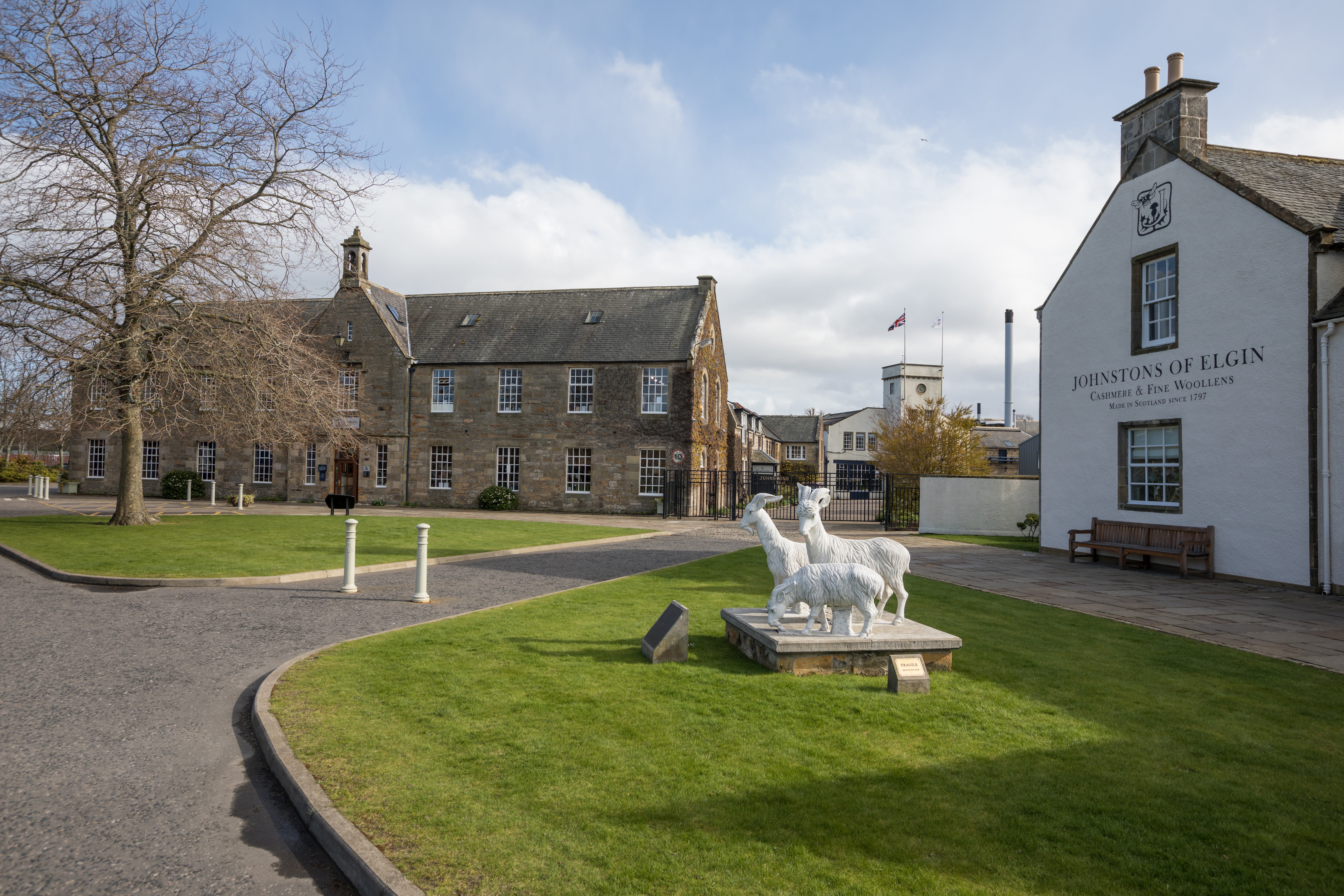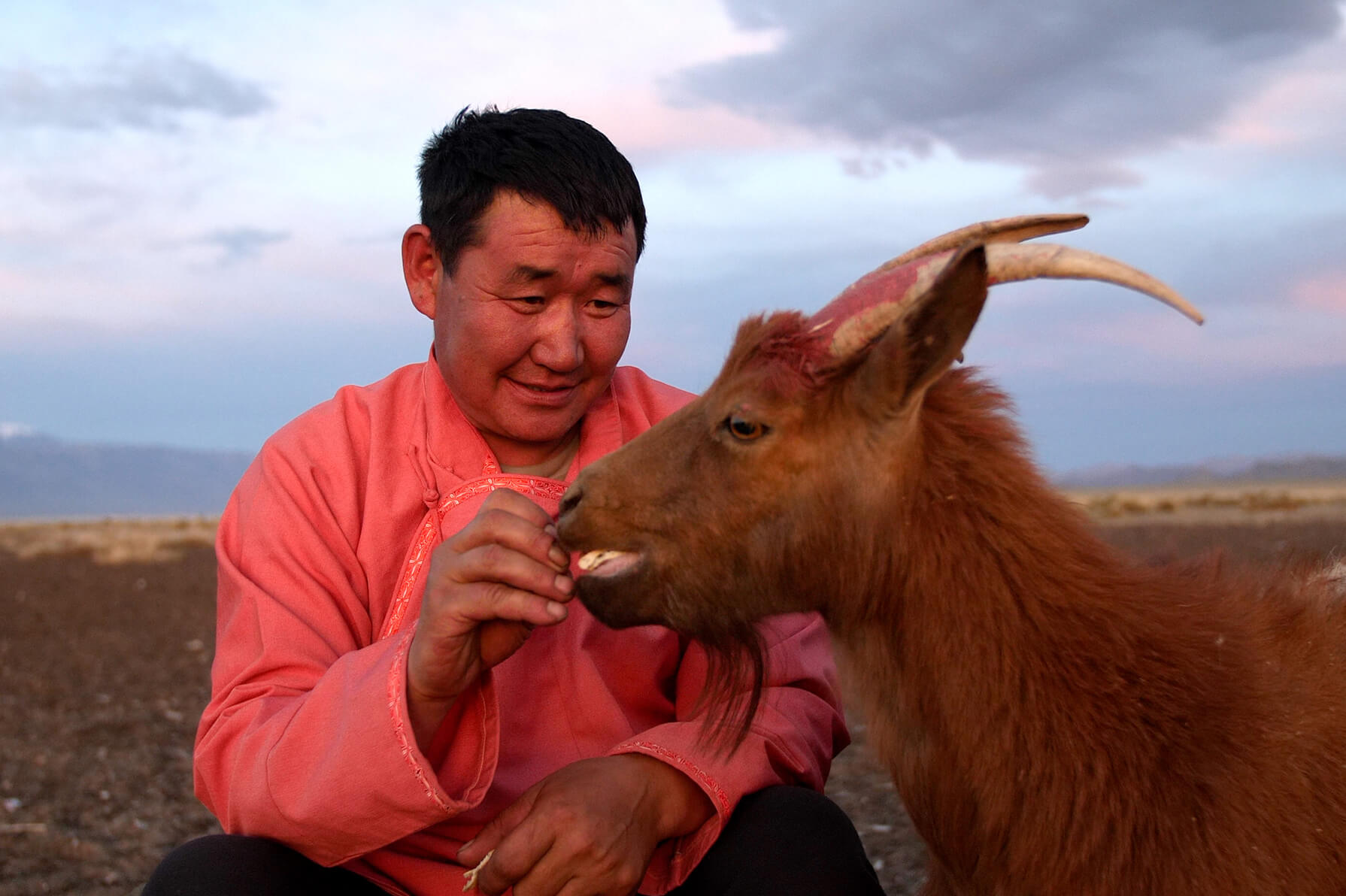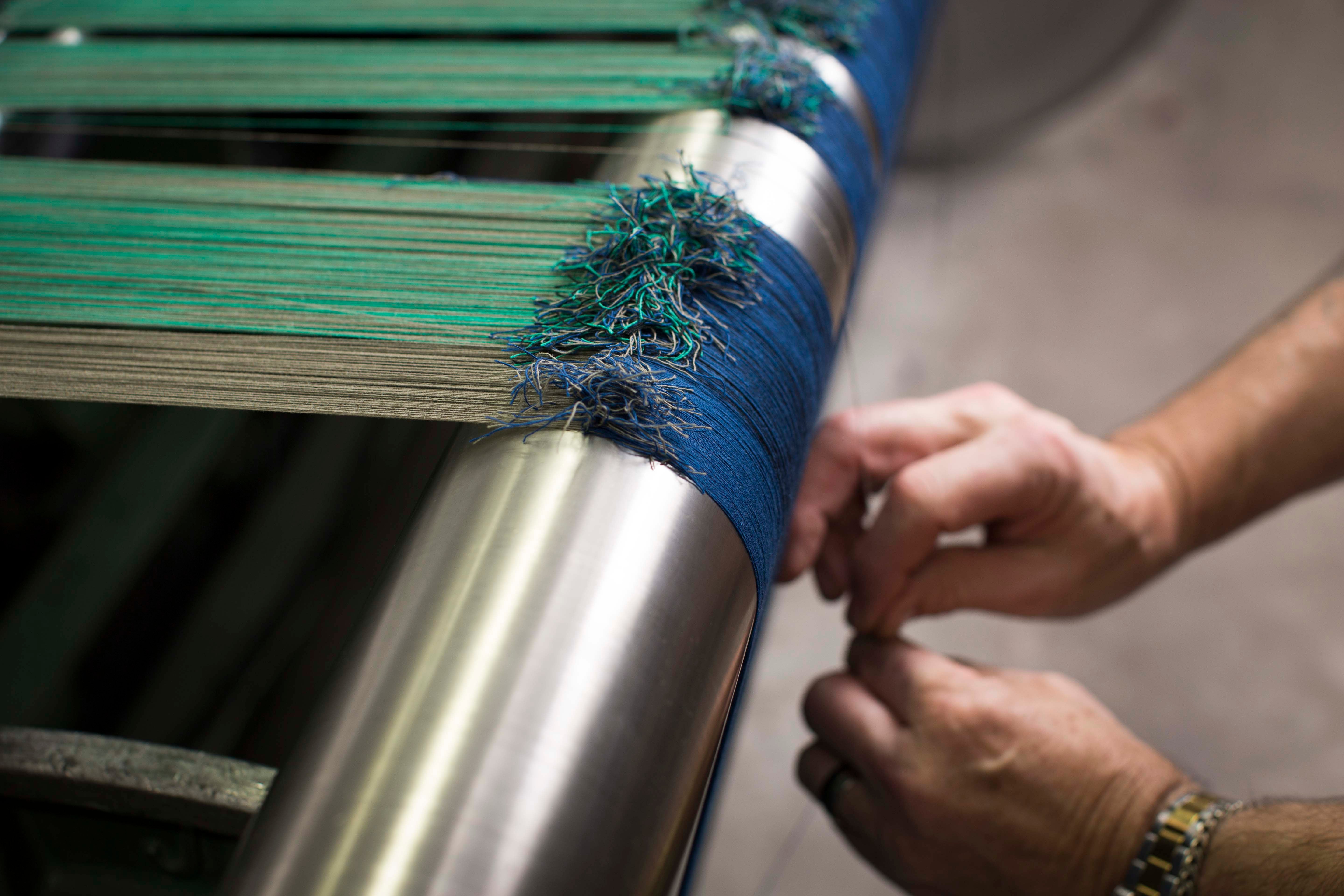Craftmanship, community and circularity – meet the luxury knitwear brand slowing down fashion
With a sustainable ethos and focus on community, craftmanship and circularity, luxury knitwear brand Johnstons of Elgin may have been around for more than 200 years, but couldn’t be more modern in their approach. Here they share their thoughtful take on luxury fashion, and how it supports people and planet

At a time when consumers are increasingly aware of the effect their purchase power has on the environment, and when the fashion and textile industries are scrambling to show off their sustainability credentials (or implement them for the first time), there are some companies that have been inherently run to protect the people and the planet right from their inception. Even if that was over 200 years ago.
Meet Johnstons of Elgin, which has been manufacturing woollen and cashmere textiles in Scotland since 1797. It has always celebrated craftsmanship, quality and beautiful natural fibres, all while protecting and providing for the communities in Elgin on Scotland’s north east coast, (where the company was founded) and in Hawick on the Scottish borders.

Having shown cashmere at the Great Exhibition in 1851, subsequently providing textiles for companies all over the world, Johnstons of Elgin opened its first eponymous store in 1981.
Fast forward 40 years, and its traditional way of working couldn’t be more in line with the most forward-thinking sustainable fashion brands around.
Local heroes
Owned by just two families in its long history, the company’s sense of place is paramount when it comes to its sustainable ethos. “The heritage of the business was making tweeds for estates in the local area,” says Chris Gaffney, Johnstons of Elgin’s Chief Executive.

“These cloths were made to blend in with the local environment; the colours of the stone, the moss on the trees. And the fact that the families have always lived locally gives us that sense of community economic sustainability, as well as making sure the product doesn’t damage the local environment.”
The transparency of Johnstons of Elgin is impressive. It has incredibly close relationships with the farmers it sources its raw materials from – Mongolia and China for cashmere, and Australia for wool – which it brings in as raw fibre. “We work with the same people year after year to make sure they understand our quality standards,” says Gaffney.

The rest of the production processes take place in Scotland. “This gives us a sense of control and responsibility over areas that can be damaging to the environment,” Gaffney explains.
“For example, we dye the product here, so we can sign up to protocols that make sure we’re not using nasty chemicals. We can also ensure that we’re paying the living wage and that we’re engaged with the quality of training and development that our staff get.”

Organic luxury
In terms of being a luxury brand, this status, as well as a natural focus on slow fashion, is something that originated organically. “For us, luxury is something that comes out of what we do, rather than trying to do luxury,” says Gaffney. “If you take care of making the product with quality in mind, you make something that’s beautiful and lasts a long time, and in some cases will be passed down through the generations.”

In the unlikely event that your investment item does need some TLC a few years down the line, Johnstons of Elgin has partnered with Cashmere Circle, a Scottish textiles business specialising in repairing and reviving cashmere by mending holes, removing stains and reviving the natural yarns to return cashmere back to its luxurious best using artisan techniques.
If it can’t be repaired, it’s re-imagined and recycled into new pieces including hats and gloves. “Wool and cashmere are wonderful natural materials,” adds Gaffney. “Beyond their first life they’ve almost always got a second value.”
Much like Johnstons of Elgin, the team behind The Macallan also take pride in high-quality British manufacturing, combining the finest ingredients and a sustainable production process to create a whisky of outstanding quality and distinctive character. The Double Cask range, currently available at The Whisky Exchange, The Whisky Shop, Waitrose and other premium retailers. Find out more at themacallan.com
Hannah Rochell (enbrogue.com) is a sustainable fashion journalist, blogger and author with a focus on slow, responsible style with comfort and practicality at its heart.
